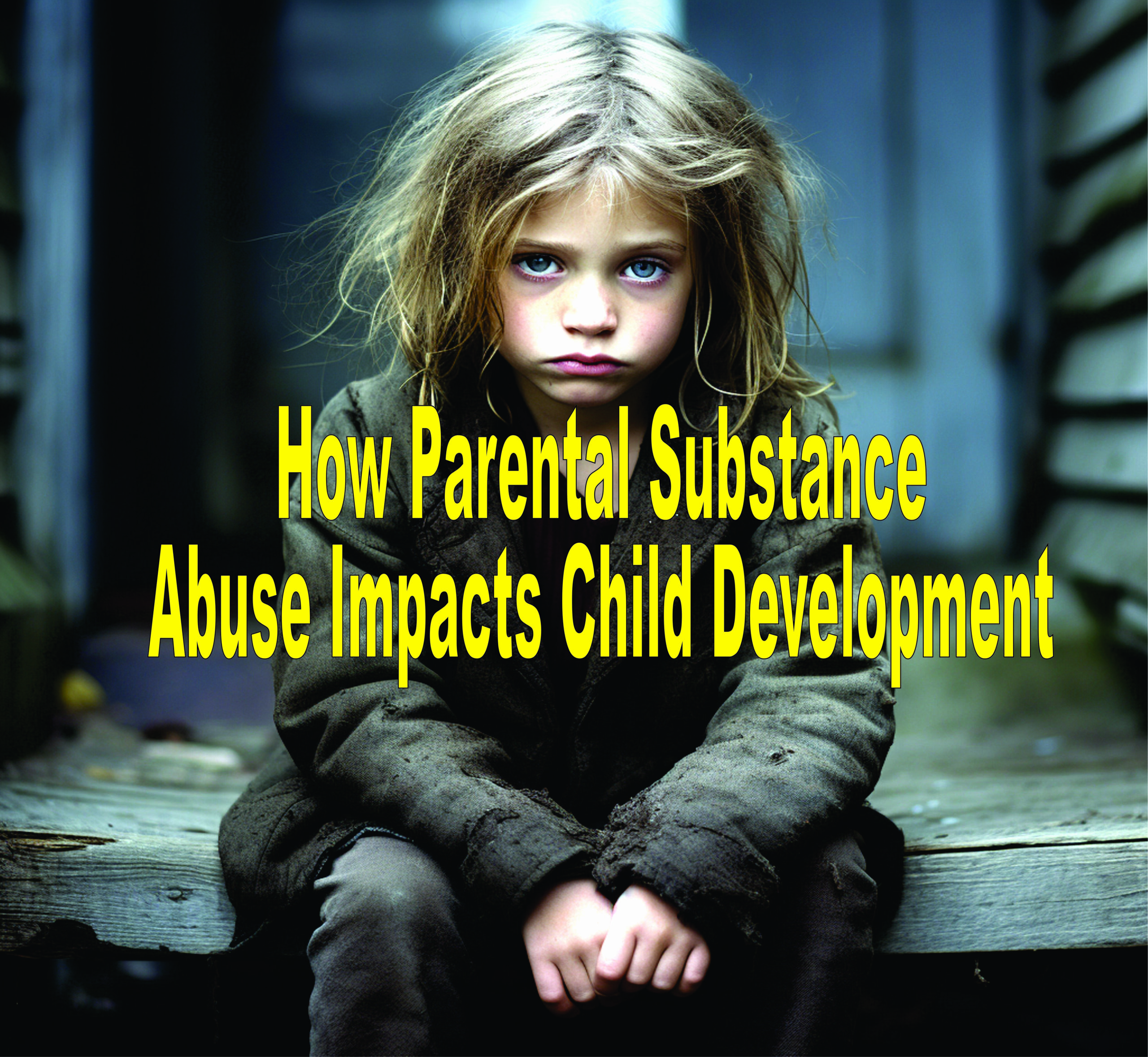How Parental Substance Abuse Impacts Child Development

Last Updated on May 2, 2024 by Kathy
When parents have substance abuse problems, it not only impacts their own lives. It can also significantly affect their children’s lives. Here are some of the most common ways in which parental substance abuse impacts child development.
Emotional and Mental Health Effects
Parental substance abuse can significantly impact a child’s emotional and mental well-being. It typically creates an unstable home environment filled with uncertainty, inconsistency, and chaos.
For example, a child could be dealing with neglect or emotional unavailability due to the parent’s preoccupation with obtaining drugs.
Educational Challenges
Children growing up in households with an addicted parent can often face substantial educational challenges. For instance, kids could experience disrupted routines that affect their attendance or performance at school.

Developing Unhealthy Coping Mechanisms
Children of addicted parents sometimes pick up unhealthy coping mechanisms to deal with their situations, such as engaging in risky behaviors like self-harming practices.
Social Barriers
Social interactions can also become a challenge for children of addicted parents.
The stigma associated with addiction often leaves these children feeling isolated and ostracized by their peers. This relative exclusion can lead to issues with forming healthy relationships in the future.
Psychological Disorders
Research has shown a clear link between parental substance abuse and the development of psychological disorders in children. Frequent exposure to stressed, hostile, or neglectful environments often sets these young ones up for conditions such as depression, anxiety, and post-traumatic stress disorder.
Impaired Development
Physical development can also be impacted by parental substance abuse. For instance, children may face malnourishment due to scarce resources being diverted towards sustaining the parent’s addiction.
Additionally, prenatal exposure to drugs or alcohol can lead to babies being born with various health problems and developmental delays.
Potential Abuse and Neglect
More disturbingly, children of parents who abuse substances are at a higher risk of experiencing physical or sexual abuse.
More commonly, they often face neglect, where their basic needs, such as food, shelter, and care, are not adequately met. This experience not only exposes them to immediate harm but could also lead to severe trauma.
Risk of Addiction
Another significant impact is the increased likelihood of children of addicted parents developing substance abuse problems themselves.
It is not just due to genetic susceptibility, but also environmental influences. For example, growing up witnessing substance use normalizes the behavior of kids.
Seeking Treatment
Overcoming addiction is important not just for those who are addicted but also for those around them, especially children. If you are a parent who has a substance abuse problem, you should seek professional help not just for your sake, but also for the sake of your kids.
With the right support and resources, such as therapy, counseling, or medication-assisted treatment, a path toward recovery can be forged. One of the best ways to recover from addiction is to engage in a program at a professional treatment center.
For instance, Allendale Treatment, which is Indiana’s most trusted addiction treatment center, offers personalized care programs and holistic approaches that meet the various unique needs of individuals to help them overcome their addictions.
At a treatment center, you could benefit from individualized therapies, group counseling sessions, and even family therapy programs.
Other viable treatment options that could assist you on your path to recovery include cognitive-behavioral therapy, which aims to help individuals understand and avoid the triggers that lead to substance use, and motivational interviewing, which can be valuable in encouraging a person’s motivation toward recovery.
Also, 12-step programs like Alcoholics Anonymous or Narcotics Anonymous can offer supportive community settings for those in recovery.

Final Thoughts
Now that you know just how much parental substance abuse can impact child development, if you are addicted to substances, you are sure to want to seek professional help.
Begin by talking to your doctor, who can help you find the right treatment options for your individual needs. Also, get support from loved ones as you enter the recovery stage. With time and effort, you can overcome your addiction and avoid your problem impacting your child.






